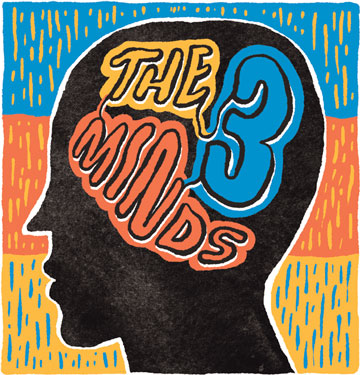
Illustration by Ray Fenwick.
In his “Directions to the Prepare dinner,” Dogen, the Japanese founding father of the Soto Zen faculty, wrote that somebody working to profit others ought to preserve three minds: magnanimous thoughts (daishin), parental thoughts (roshin), and joyful thoughts (kishin).
Magnanimous thoughts (or “large thoughts”) means, based on Dogen, “being unprejudiced and refusing to take sides.” In different phrases, magnanimous thoughts isn’t swayed by biases or preferences. Cooks with magnanimous thoughts work with the substances they’ve, not those they need they’d. What’s there’s at all times sufficient.
Parental thoughts (actually “outdated thoughts”) takes nice care with no matter, and whomever, one encounters, not distinguishing between self and different. Unforgettably, Dogen instructs cooks to deal with substances “as in the event that they had been their very own eyes.”
Joyful thoughts is the thoughts of gratitude for what’s. The prepare dinner sees the chance to feed and serve others not merely as a job however as a possibility. With that view the prepare dinner finds a pleasure that’s not conditional—it arises from the vow to profit others and doesn’t rely upon issues going proper or fade when issues go fallacious.
These three minds may be seen as reflections of each other: for instance, parental thoughts is a pure extension of each magnanimous thoughts and joyful thoughts; joyful thoughts may be very a lot the thoughts of a mother or father. Collectively, these three minds describe the interior world of the bodhisattva.

